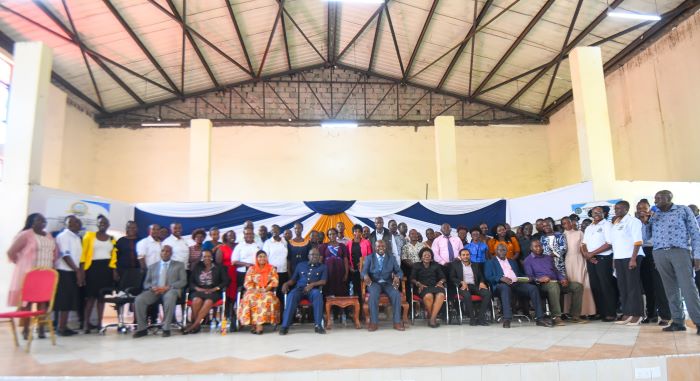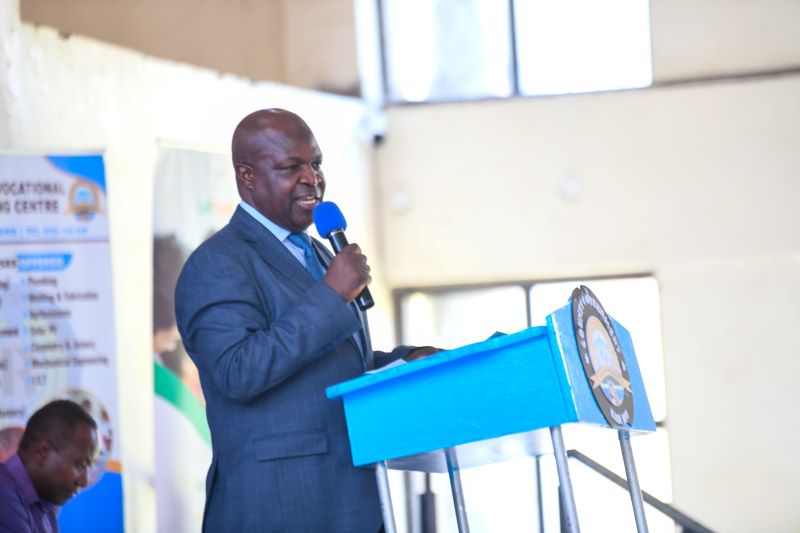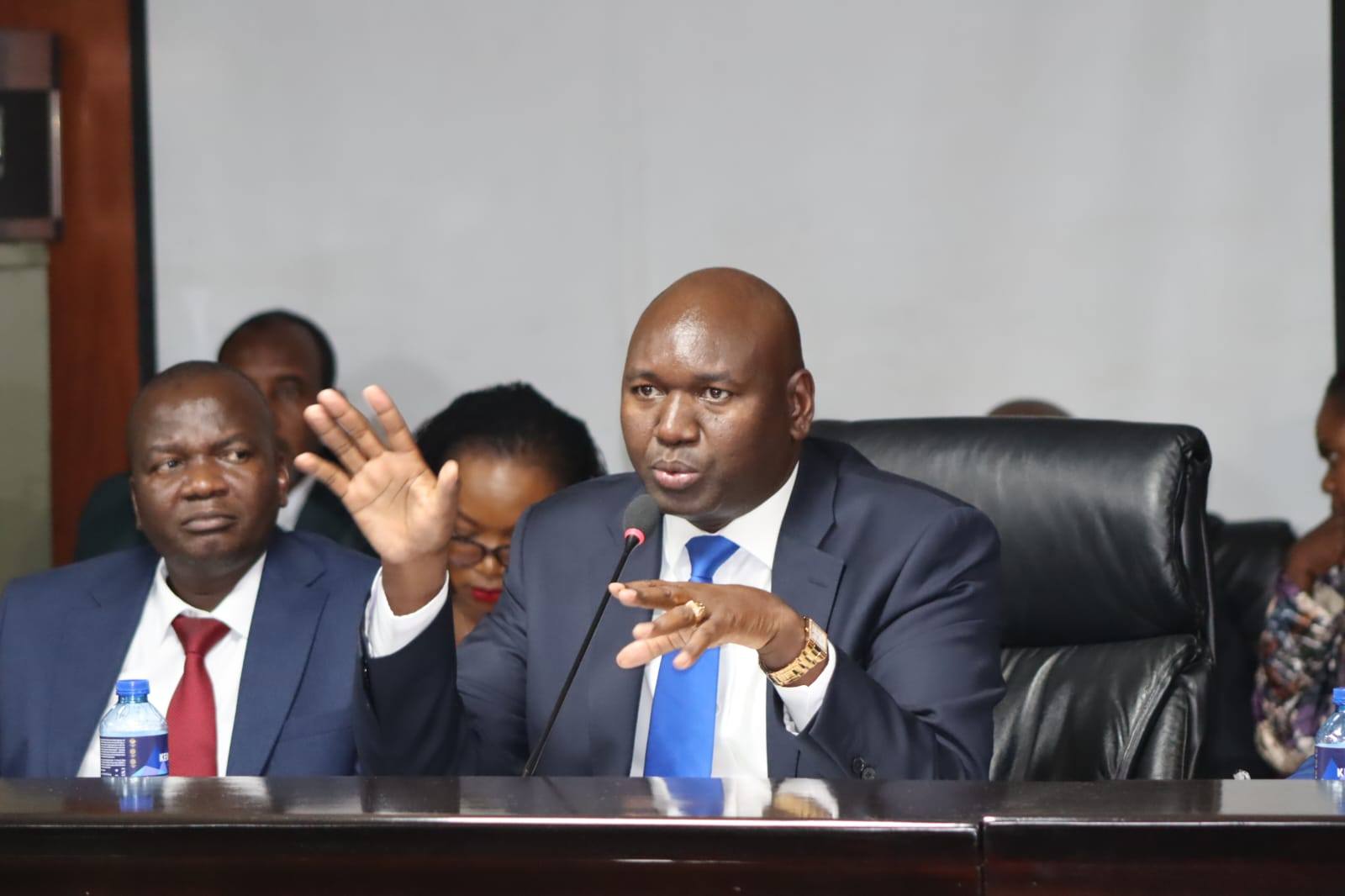The County Government of Kisumu has welcomed newly recruited ECDE and vocational trainers, marking a significant step in strengthening the education and skills development sector. The numbers add to the current ECDE teachers across the county.
Governor Anyang Nyong’o said in a speech read on his behalf by his deputy that there are 653 ECDE centres with a total population of 44,521 learners (22,440 Boys and 22,081 girls) against 697 teachers.
In 2022, Nyong’o said, my government changed the terms and conditions of service for 650 teachers to permanent and pensionable from contractual terms on which they have served since 2015 as a way of appreciating.
He said the additional 100 ECDE teachers they are inducting are also engaged on permanent and pensionable terms.
‘They will complement the teaching force, which has yet to reach the optimum,” he said.
He said that all public ECDE centres will have at least one teacher.
On Infrastructure development, the governor said his government has created a conducive learning environment by building classrooms and toilets and supplying play equipment to ECDE centres.
He said this had been made possible through county development allocations and support from partners.
A total of 350 classrooms, he said, have been jointly put up with partners.
READ ALSO:
He said they recently commissioned a model ECDE Center of Excellence at Canon Nyong’o Learning centre in Seme with the support of Play Action International. A similar school has been built at Obwolo in Kisumu East.
He said his government annually procures learning materials worth KSh20m to ECDE centres.
To equip learners with digital literacy skills, he said his government recently launched phase one of digital learning, namely, the Tayari programme in half of the schools in partnership with EIDU Ltd to provide the digital learning platform.
The governor said his government has been running a feeding program since 2018 to ensure the retention of learners in schools. This, he said, has increased enrollment, retention and completion and also improved learning outcomes in schools.
Additionally, the governor said his government has made significant milestones in the technical training and innovation space.
He said they include establishing Vocational Training Centres from 20 in 2018 to the current 28 VTCs with an ultimate aim of 35 VTCs by 2027, developing Kisumu County VET policy and Act of 2023, which provide the regulatory framework for managing the sector, and providing capitation grants of KES 15,000 for every trainee enrolled in public vocational training centers as subsidies.
Cumulatively, he said that since the Financial Year 2017/2018, his government has allocated a total of KSh 374,315,000, the impact of which has seen an increase in trainee enrollment from 2,400 in 2018 to the current 6187 trainees.

He said 42 workshops and three administration offices have been constructed over the years through county allocations, partners, and the utilization of capitation grants.
To respond to job opportunities along the Lake region, the governor said they have partnered with colleges and institutes in Canada to establish Competency-Based Education (CBE) and training courses under Kenya Blue Economy Skills Training.
He said one such partnership is between his government and Pratham International, where, in February 2024, six government officers were sponsored on a study tour to learn best practices in India regarding Vocational Training.
He noted that through Colleges Institutes Canada, six trainers will travel to Canada to sharpen their skills in CBE and training and transfer their knowledge to our institutions.
He said his government has set up modern motor vehicle garages in three vocational training centres.
“The aim is to bring the industry to our training centres through motor vehicle repairs and maintenance,” he said.
He said this would expose students to industry trends as they work with specialists and help institutions earn revenues from the subsidies.
He said the additional 25 technical trainers will ensure that each institution has at least two trainers, and progressively more will be hired as the recruitment plans captured in our CIDP and other policy documents dictate.
By Fredrick Odiero
You can also follow our social media pages on Twitter: Education News KE and Facebook: Education News Newspaper for timely updates.
>>> Click here to stay up-to-date with trending regional stories
>>> Click here to read more informed opinions on the country’s education landscape
>>> Click here to stay ahead with the latest national news.






